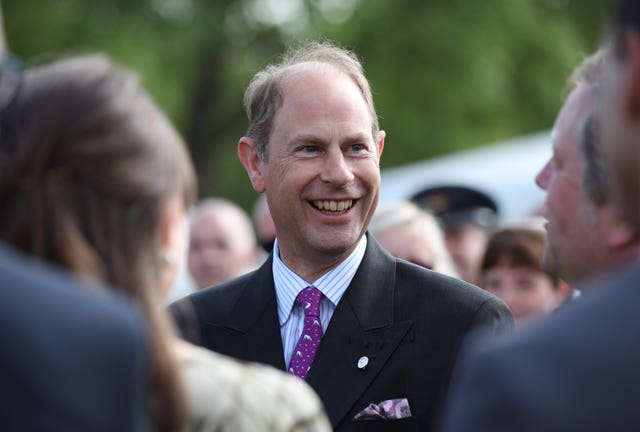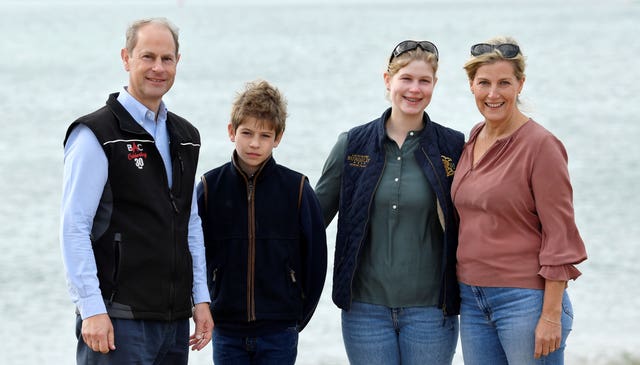
The Earl of Wessex has said the academic careers of many young people have been “thrown into chaos” by the pandemic and extra-curricular achievements were now more important than ever.
Edward also described how the disruption to schooling was affecting his daughter Lady Louise Windsor, who “struggles a bit with online learning because she’d much prefer to be with everybody else”.
For more than 30 years the earl has been involved with the Duke of Edinburgh’s Award (DofE) programme, which gives young people the chance to develop skills and confidence by completing tasks.

And he said young people “desperately” needed a “sense of achievement” and the feeling they have “really accomplished something”.
Speaking to Sky News Edward said: “For so many, their academic careers have been completely disrupted and thrown into chaos…the longer term impact is going to be immense.
“At the end of the day we’re talking about what we can give young people that’s really going to help them in the future…how they are going to be ready for the world.
“And that’s not just about academics.
“The role of non-formal (learning) in this present climate is going to be even more important than ever before because it’s those skills and experiences which are going to be looked for.
“It’s that sense of achievement that young people desperately need.
“They need to feel that they’ve really accomplished something and that’s really important for their own self-confidence and their own self-belief.”

The earl has been deeply committed to the DofE since achieving his own gold award in 1986 and the following year became a UK trustee of the charity and of the International Award Association, and was chairman of its International Council for 17 years.
Since 2015 he has been chairman of the trustees of the Duke of Edinburgh’s International Award Foundation.
Speaking about his 17-year-old daughter he said: “One of them who loves school is just terribly frustrated at not being able to go to school, the eldest one Louise.
“But she had her GCSEs interrupted last year, we went through that whole pain of having all that suddenly taken away from you, and she sort of struggles a bit with online learning because she’d much prefer to be with everybody else.”
The DofE has said as schools reopen next month it is critical young people are able to take part in non-academic activities that help them reconnect properly with friends and their communities, and re-build their resilience and confidence, so they are more able to make progress in the classroom.
Edward’s words were echoed by Ruth Marvel, chief executive officer of the DofE, who said: “Young people have had their lives turned upside down by the pandemic.
“Academic catch-up is important but alone it’s not enough to help young people recover.
“We need a two-pronged catch-up approach that combines both academic and extracurricular learning to help young people progress at school and regain their sense of normality.
“One won’t work without the other.”


Comments: Our rules
We want our comments to be a lively and valuable part of our community - a place where readers can debate and engage with the most important local issues. The ability to comment on our stories is a privilege, not a right, however, and that privilege may be withdrawn if it is abused or misused.
Please report any comments that break our rules.
Read the rules hereLast Updated:
Report this comment Cancel